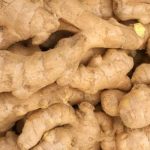Over 30,000 farmers have benefitted from various intervention programs implemented by the Ogun State Government.
The Commissioner for Agriculture, Mr. Bolu Owotomo, disclosed this at the flag-off ceremony for the distribution of agricultural inputs and services to farmers under the Ogun State Economic Transformation Project (OGSTEP) in the Yewa Agricultural Zone.
Owotomo stated that the event, organized in conjunction with the zone’s Value Chain Development Firms, RBS-JDPC-ABEOCCIMA Consortium, and International Business for Agricultural Development (IBAD Limited), underscores the state government’s commitment to the agricultural sector.
He mentioned that over 20,000 farmers have been supported through OGSTEP with significant investments exceeding 600 million Naira, covering mechanization services, supply of fertilizers, seedlings and stems, agrochemicals, day-old chicks, fish feed, poultry feed, training, and capacity building, among others.
The commissioner also noted that the state government has facilitated off-taker linkages for expected yields, with an estimated 107,000 metric tonnes of produce anticipated from the last season’s production.
“Today we gather not merely to distribute inputs but to sow seeds of change and progress. Through this initiative, we aim to empower our farmers with resources, knowledge, and support to enhance productivity, improve livelihoods, and ensure food security,” he said.
In her welcome address, the coordinator of OGSTEP, Mrs. Mosunmola Owo-Odunsi, represented by the Program Manager, OGSTEP Agric, Dr. Oluseyi Olugbire, highlighted the achievements of the program, noting that testimonies received so far prove the state government’s commitment to farmers’ well-being.
In their separate remarks, the Managing Director of RBS Consortium, Mr. Akinremi Osijo, and his counterpart from IBAD Limited, Mr. Jamiu Adeyemi, stated that the event aimed to create visibility for the OGSTEP program and its stakeholders’ efforts in transforming the zone’s agribusiness environment and governance for collective wealth creation through strategic, futuristic thinking and commodity markets.
According to them, the event was to help industry stakeholders understand the interdependent nature of co-creating utility value and wealth through agricultural commodity markets and to bridge gaps in the food and agricultural supply chain.
The distributed inputs include high-quality seeds, fertilizers, herbicides, pesticides, and mechanical services. Additionally, training programs, market linkages, and equipping farmers with skills to adopt best practices are also provided.





